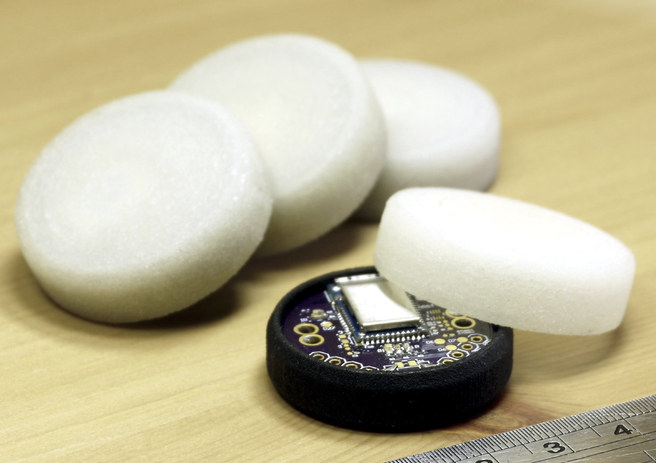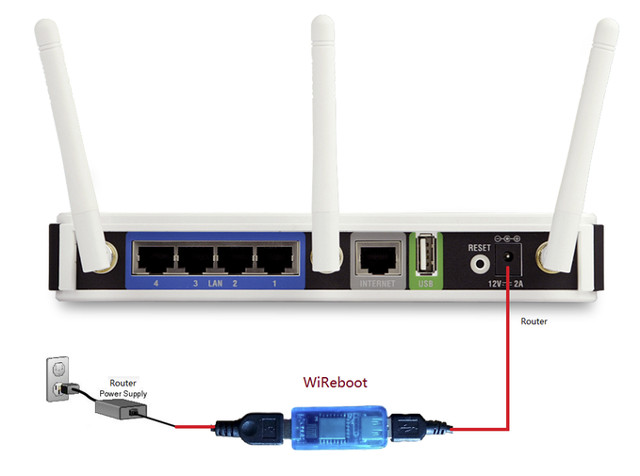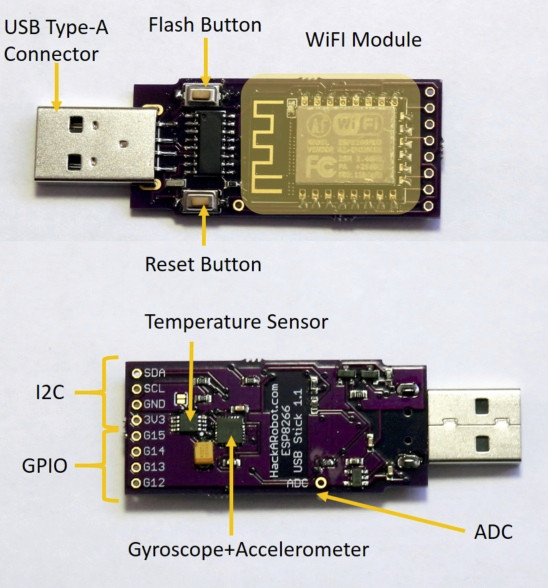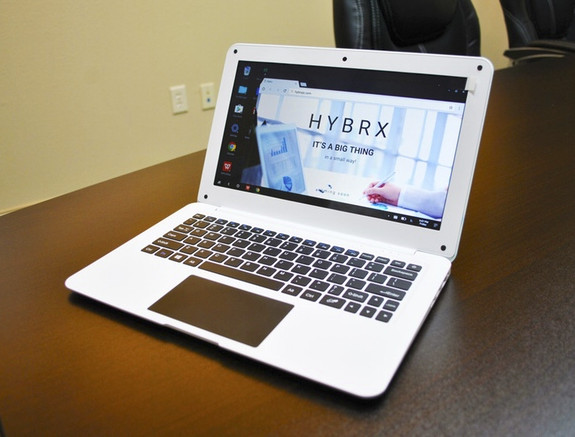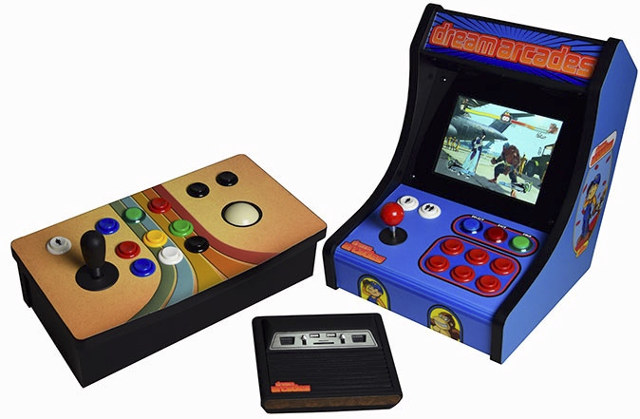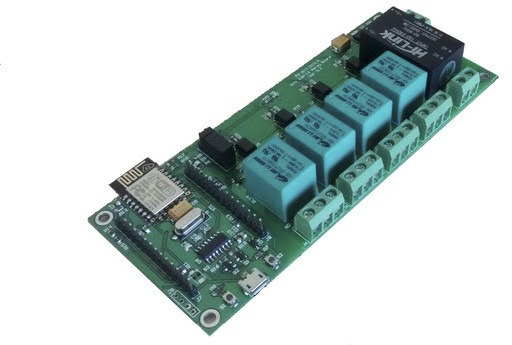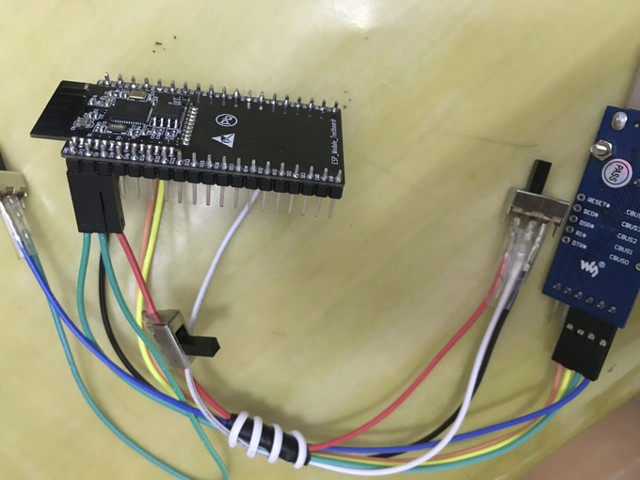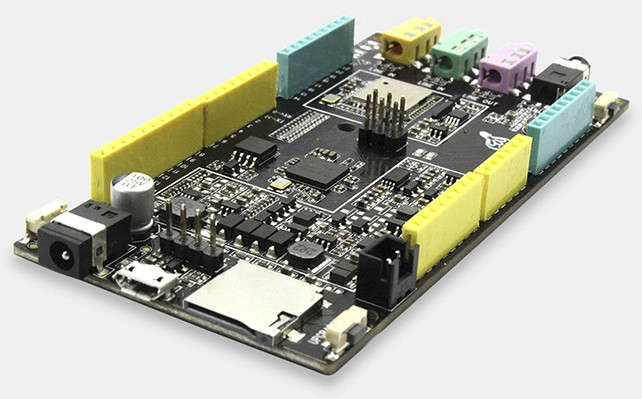I first found out about Bluetooth LE tags in 2012 with SticknFind project, and since then many other companies have designed their own Bluetooth beacon mostly to find objects such as your keys or pets. Puck.js is also a Bluetooth 4.2 LE beacon, but has many more features including compatibility with the upcoming Bluetooth 5.0 standard, and some GPIOs programmable with JavaScript (Espruino implementation), and corresponding visual programming editor. Puck.js hardware specifications: Bluetooth Smart SoC – Nordic Semi nRF52832 ARM Cortex-M4F micro-controller @ 64 MHz Connectivity Bluetooth 4.2 LE/smart, Bluetooth 5.0 Ready; up to 80 meters range in open space On-chip NFC support Expansion – 8x through holes with 6x GPIOs, and 2x power signals Sensors – MAC3110 magnetometer, on-chip temperature sensor Misc – 1x tactile button, 4x LEDs (R, G, B, IR) Battery – CR2032 210mAh battery good for about a year (application dependent) Dimensions – 35mm diameter, 10mm […]
WiReboot is a Watchdog Device Rebooting Your Router if the WiFi Connection is Lost (Crowdfunding)
Routers are usually pretty stable devices, but sometimes they still hang, and I think I must reboot my router about 2 to 3 times a year as I lose (Ethernet) connectivity. I’m usually at home, so it’s not really an issue as I can just walk a few meters to manually reboot the router. But if you are often on the go, and have a few WiFi devices such as smoker alarms, smart lights, and other home automation products that you may want to control over the Internet, if WiFi goes down nothing works. Luckily there’s a solution: WiReboot, a small device powered by ESP8266 that will check your WiFi and Internet connection, and automatically restart the router if it fails.Key features of WiReboot: ESP8266 module for 802.11 b/g/n WiFi connection USB – 1x USB input port to connect your router power supply, and 1x USB output to connect to […]
WiThumb is an ESP8266 WiFi USB Adapter with Motion and Temperature Sensors (Crowdfunding)
There are now plenty of Espressif ESP8266 boards or module to play with, but most of them require some cables or wires, at least for power. WiThumb does not need any of that as it’s designed to be plugged into any USB ports, and includes a 6-axis motion sensor, and a temperature sensor. WiThumb USB dongle specifications: SoC – Espressif ESP8266 32-bit MCU with 802.11b/g/n WiFi Storage – 4MB Flash memory Sensors – Temperature sensor (+/- 0.25C typical accuracy, -40 to 125 C range), 6-axis gyroscope + accelerometer Expansion – Breadboard friendly through holes with 1x 10-bit ADC, I2C and 4x GPIOs USB – USB type A connector Misc – Reset and flash buttons Power – 5V via USB port Dimensions – 4.8 x 2.2 cm The USB stick can be programmed like most ESP8266 board, i.e. via USB using the Arduino IDE. In case you wonder what kind of […]
Azpen Hybrx Remix OS 3.0 Laptop based on Allwinner A64 Processor Goes for $69 and Up (Crowdfunding)
We were presented with prototypes of sub $100 Remix OS laptops based on Allwinner A64 64-bit ARM processor in April, and now it appears at least one of th presented laptops has been launched on Kickstarter where you can get one for as low as $69. Azpen Hybrx A1160 laptop specifications: SoC – Allwinner A64 Quad Core ARM Cortex A53 processor @ 1.3 GHz with Mali-400MP2 GPU System Memory – 1GB or 2GB RAM depending on model Storage – 16GB or 32GB flash depending on model + micro SD slot Display – 11.6” HD LCD 1366×768 (16:10 aspect ratio) Video Output – mini HDMI up to 4K resolution Audio – HD Audio, 2x built-in 1W speakers, built-in microphone, 1x 3.5mm headphone jack Connectivity – Wi-Fi: 802.11 b/g/n, Bluetooth 4.0 Camera – 2.0MP front-facing camera USB – 2x USB 2.0 host ports Sensors – G-sensor, accelerometer Power Button, Volume Button Dimensions […]
Dreamcade Replay is a Retro Gaming Console Powered by Intel Braswell or Cherry Trail Processor (Crowdfunding)
If you are old enough to have played with Sega or Atari game console, and feel nostalgic about playing retro games, Dream Arcades Inc. plans to launch a vintage gaming console powered by Intel Braswell or Cherry Trail processor, running Windows 10 and preloaded with licensed retro games such as Pacman, Asteroids, Canyon Bomber, Slot Machine, Warlords, and many other. The console also has Sega/Atari ports to be used with your old game controllers. Three main products will be offered: Wireless Arcade Controller, Replay Classic game console, and Replay Mobile arcade machine, with the last two using the same hardware with the following preliminary specifications: SoC – Intel Atom x7-Z8700 Cherry Trail quad core processor, or Intel Celeron J3160 (or other) Braswell quad core processor with Intel HD graphics System Memory – 4GB Storage – 64GB eMMC flash + micro SD and SD slots Video Output – HDMI Display (Arcade […]
Armtronix AC Powered WiFi Quad Relay Board is Powered by ESP8266 SoC (Crowdfunding)
Armtronix, an Indian startup, has come to kickstarter to launch a quad relay board with an AC terminal based on ESP8266, and the company also offer a complete kit allowing you to build your own wireless power strip with the board. WiFi quad relay board specifications: Wireless module – ESP8266 module 4x Relays to connect four AC/DC loads with terminals offering both MO and NC options “ModeMCU” headers to connect additional sensors such as PIR, IR, Temperature, Humidity, Limit switch etc. USB – micro USB port for programming. Misc – LEDs Power Supply – Terminal with 100-240V AC to 5V DC converter. Dimensions – 145 x 60 x 22 mm. The WiFi Quad Relay Board can be programmed as “MQTT Client” for networking/home automation integration using Arduino IDE, and controlled/ setup with a smartphone running a web browser. Some code is already available on the company’s github account. The crowdfunding […]
Get an Early ESP32 Board by Contributing to Luanode for ESP8266 & ESP32 Project (Crowdfunding)
Development boards and module based on Espressif ESP32 dual core processor with WiFi and Bluetooth LE connectivity are due for Q3 or Q4 2016, but you could get an early sample as early as July if you contribute to Jimmy Wu’s (of wifimcu.com) crowdfunding campaign to develop Luanode (Lua SDK) for ESP8266 and ESP32 processors, as ESP32 boards are part of the rewards. Luanode is a Lua SDK for ESP32 and ESP8266 that supports multi-tasking through FreeRTOS, and includes support for peripherals. The source code and documentation can be already be found on Github, and the main differences against something like NodeMCU appear to be multi-tasking and (for now) ESP32 support. Interestingly the SDK contains a tools called WiFi-Killer uses for Denial of Service (DoS) attacks using ESP8266 or ESP32 modules… One hardware project is called WiFi tank comprised of one T300 Tank Chassis, ESP8266 Development Kit, 720p HD Camera, […]
Fireduino Arduino Compatible Board Features Rockchip RKnanoD Dual Core Cortex-M3 MCU (Crowdfunding)
Rockchip RKNanoD dual core Cortex M3 micro-controller was introduced last year for IoT and audio applications, and the Firefly team, known for their FirePrime or Firefly-RK3288 development boards, has designed an Arduino compatible board based on the MCU with lots of audio ports, Arduino headers, and WiFi connectivity. Fireduino specifications: MCU – Rockchip RKnanoD dual core ARM Cortex M3 MCU @ up to 250 MHz (system core) / 500 MHz (calculate core) with respectively 640 KB and 384 KB RAM Storage – 4 or 8MB SPI flash + micro SD slot Audio 24-bit/192 KHz audio codec (built in MCU) with HW accelerator for APE, FLAC, OGG, and MP3 audio decoding 1x 3.5mm analog audio jack 2x 3.5mm LINE In jacks 1x On-board microphone DLNA wireless audio support Connectivity – 802.11 b/g/n WiFi via Ampak AP6181 module Expansion Arduino header with I2C, SPI, ADC, GPIO, PWM, UART LCD interface (Intel 8080 […]


